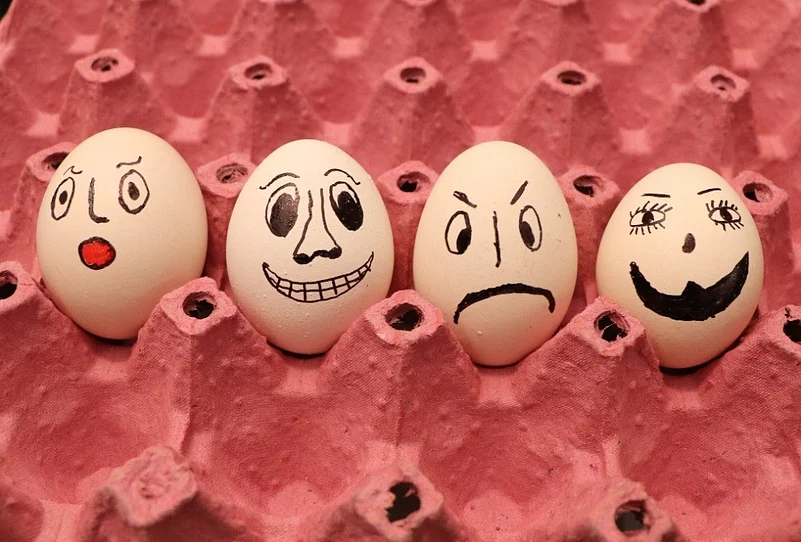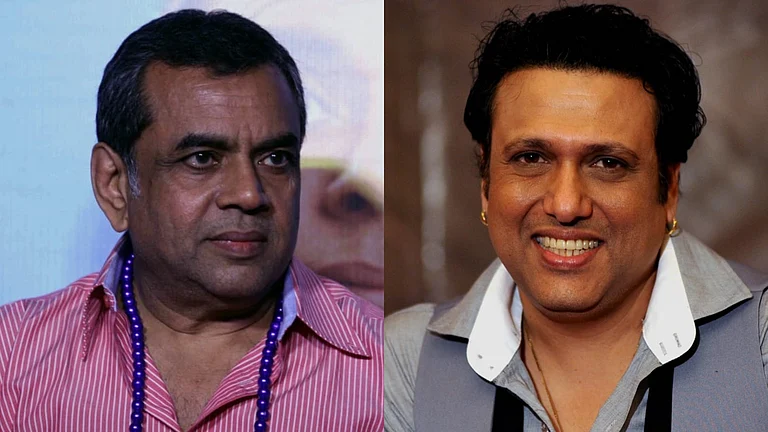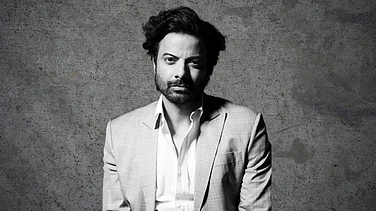“When you drive back home, stop for a while on the edge of a desert
and give the body a big Turkish bath, in this heavenly form my Father,
let my country awake.....”
I K Sharma, Above The Earth’s Green
Munawar Faruqui has had pretty enduring 2021. He spent his 29’th birthday in a jail, after he was arrested and put in jail for more than a month, when a group of men from a Hindu organisation stormed claimed that he’d made “indecent” comments about Hindu deities and insulted politicians, during his show, in Indore.
Then towards the later-half of the year, in a span of two months, 12 of his shows were cancelled where police authorities, as Faruqui wrote in a statement on social media, claimed to have taken the decision after receiving “threats to the venue and the audience”.
The Rising Intolerance
“Nafrat jeet hai, Artist haar gaya (Hatred as won, artiste has lost). I’m done! Goodbye! INJUSTICE,” he captioned the statement he shared on social media.
Faruqui is one of the prominent faces amongst the stand-up comedians, who dared to question the social and political structures in the country, leading many to believe that comedy in India, is in danger, and if the nation is at risk from losing its sense of humour.
“There’s a lot of uncertainty around, and comedians have to find a way around that, I feel. Earlier it was covid, and now it is something else (because of which shows are getting cancelled). There’s no choice really, because wherever we go to seek protection from the police, we are told that it’s not an important enough event for it to be given any security. So, you better cancel it, because we are receiving so many complaints. That is what is going on between police and the people,” says Kunal Kamra.
Kamra is another prominent name in the stand-up circuit -- popular for his jokes directed at the privileged in the country -- whose shows have been cancelled for similar concerns over security. Even Kamra, like Faruqui, has been forced to a similar decision, and decided to keep his head down, till hopefully”, the situation improves.
“I am not a person who is going to do a show to prove a point. If people want to listen, they will tune in on their own. I don’t worry about things. That’s just how I am. Whatever is happening, whatever has happened, will be funny in the future. You can joke only when you take yourself out of that situation, and then see ‘Oh this is happening’. Then you will be able to see the funny side,” he says.
“I started as a comedian in 2013. India had a sense of humour, then. But now in, 2022, India doesn’t even have a common sense. I mean people can say anything. We are in that era it can be any news item and still no one would be surprised by it. [It’s like] We are running in a parallel universe. [So,] I am going to wait it out. I have been in this profession for nine years, and pursuing any other career is impossible at 33. I don’t have any other skill,” adds Kamra.
Comedy As A Tool To Raise Voice Against Injustice
But comedy and satire have been long-used to raise voice against injustice, and in empowering the under privileged. Ashok Chakradhar, a veteran poet, who is also popular for his satirical poems recalls a time when his satires were heard and even appreciated by the likes of Atal Bihari Vajpayee and Sonia Gandhi.
“There was a difference back then. There were no jokes. There was always poetry with satire. Having said that, there was a lot of tolerance as well. I remember I did it against a lot senior politicians like Atal Bihari Vajpayee Or Sonia Gandhi. I remember (while referring to Sonia Gandhi), when she had just come to power, I had joked around the song “Tum aa gaye ho noor aa gaya hai, warna chirago se roshni ja rahi hai,” he recalls.
“If you make it person-specific, or aim your jokes at a person, then people supporting them, or their loved ones will come after you. You have to comment on the trend, on the stereotypes, not the person. That’s what satire is. Kaka Hathrasi (celebrated Indian poet famous for the use of satire in his poems) never made it against any person. He was always someone who commented on the trends. Comedy is all about observation, and comes from a true place, because it is about how your heart reacts in that situation,” he explains.
But while there is enough evidence to prove that comedy and satire have been long-standing part of Indian literature, and was used as a medium to raise voice against stereotypes and negative trends in the country, many believe that the rigid patriarchal family system prevents an average Indian from understanding the concept of sense of humour.
“Family is the unit of democracy. When you are child, in an average Indian middle-class family, you are told that you cannot question your elders, you cannot make fun of them. You have to respect them. So, the concept of taking a joke starts from there. If, a family will not allow jokes among themselves, then you cannot expect the child to grow up and magically develop a sense of humour,” says Sanjay Rajoura, a popular stand-up comic, who is also part of the satire group Aisi Taisi Democracy that was formed in 2013-14.
Punching Down Is Not Comedy
As the name suggests, the satire group comprising Rajoura, lyricist-writer Varun Grover and singer songwriter Rahul Ram, Aisi Taisi Democracy takes on several socio-political themes including border relations, elections, politics, and dares to ask some uncomfortable questions, all in disguise of humour. Rajoura feels the recent events of shows getting cancelled is an outcome of the privileged middle-class families, not willing to accept the “truth”.
“When you call out the bigotry of the privileged, obviously they will get bothered. Plus, there’s no concept of a sense of humour. That’s why everyone is getting offended, so easily these days. Who are these offended people? Mostly upper class privileged men,” he says, adding that comedy, too does reflect a lot of these privileged voices.
“You see someone post a joke on reservation, and you see how many people will share it thinking it is funny. You see someone share a joke on a woman, and see how many people will find it funny and share it. But you see someone mocking a privileged upper-class man, everyone will gang up and say this comic is bad,” he says.
“To be honest today’s comedians should be cancelled because the level of jokes is just so bad. They don’t understand the concept of their privileges or the concept of punching up or down, or empathy for that matter. And most of them, if not all, are getting popular,” he adds.
Countering The Hate
But while, there is a rise in the number of incidents where shows are getting cancelled, there is also a section, which is supporting the satire, the jokes and the comedians who are talking about such issues. Neeti Palta, released a nearly 10-minute-long video on YouTube, where she joked about the rising intolerance, especially against the comics in the country.
“It is bizzare that I am scared of cracking jokes. A lot of us run our jokes by lawyers these days. People are jumping signals, not wearing masks, raping and murdering other people and committing all sorts of crimes. Yet it is people who are telling jokes who are scared the most. It is a giant joke in itself, isn’t it? Pretty sure, now we will see a comedian standing for an election because they will have a jail record as well now,” she jokes.
And just like Rajoura, Palta too feels that comedians, especially the younger comics, often try to use controversy as a shortcut to fame.
“My genuine view is that, we have been doing comedy for donkey years and suddenly it just exploded. It became the cool and it thing to do. Now, there’s power attached to it. I see a lot of young comics, who take the shortcut by saying something controversial. You have to be solid on your facts and have a bit of street cred before you start talking like that. But having said that, of course the right to be able to express, in the first place, has to be there. But there’s a little thought process that has to go into writing or making a joke. It has to say something,” she says.
“[But,] I am an eternal optimist. There’s an offset, more people are coming to watch comedy and there is a definite increase in number of people who are encouraging comedians. So, somewhere there is a counterbalance to the hate. A lot of people take time out to shit on your timeline, but now there are also a lot of them who pat on our backs and encourage us to to keep going. That’s my positive outlook,” she adds.
Phir Bhi Dil Hai Hindustani
While the debate continues to stay wide open about whether comedy in India is on a downward slope, or that if India is losing its sense of humour, it perhaps, as Kamra says, is much bigger than that.
“Forget the fact that India is getting offended, or India as a nation is losing its sense of humour. There is not a single person in the country who can define what is the idea of India. Every single person right now has a different definition in their head about India and what the idea of India is. Everyone is fighting, including the political parties. Once they settle that debate about what India really is, then we will figure out what we can joke about, in this country,” says Kamra.


























